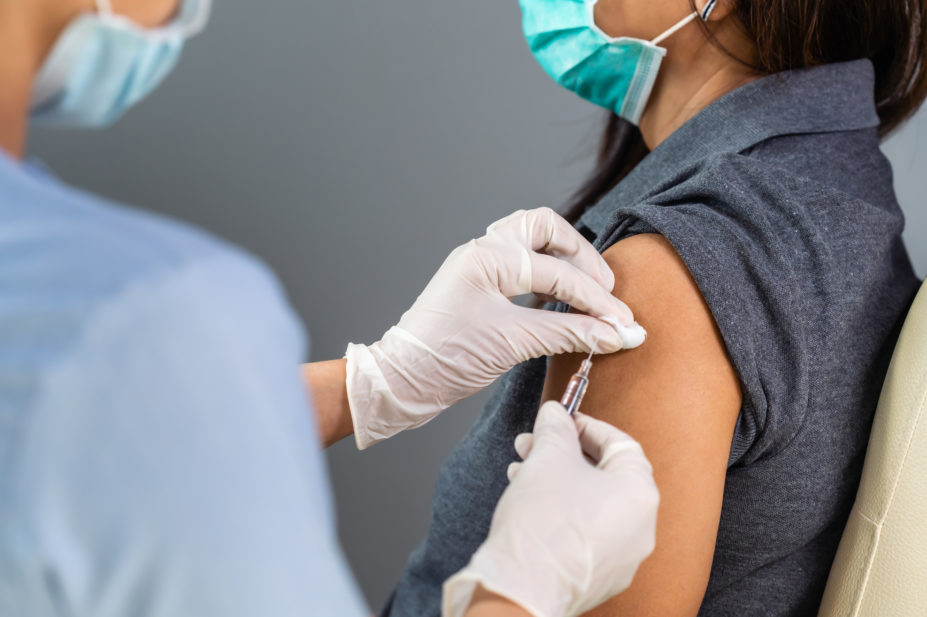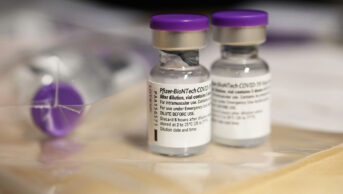
Shutterstock.com
Open access article
The Royal Pharmaceutical Society has made this article free to access in order to help healthcare professionals stay informed about an issue of national importance.
To learn more about coronavirus, please visit: https://www.rpharms.com/resources/pharmacy-guides/wuhan-novel-coronavirus
Unvaccinated adults aged 18–39 years with no underlying health conditions in the UK should be offered an alternative to the Oxford/AstraZeneca vaccine if available, the Joint Committee for Vaccination and Immunisation (JCVI) has said.
The JCVI had previously recommended on 7 April 2021 that adults aged under 30 years should be offered an alternative to the Oxford/Astrazeneca vaccine, following concerns about rare incidences of blood clots and low platelet counts in patients who had received their first dose of the vaccine.
In updated advice, published on 7 May 2021, Wei Shen Lim, COVID-19 chair for the JCVI, said that unvaccinated adults aged 30–39 years, who do not have an underlying health condition that puts them at higher risk of severe COVID-19, should also be offered an alternative to the Oxford/AstraZeneca vaccine where possible.
He added that an alternative should be offered only where no substantial delay or barrier in access to vaccination would arise.
Speaking at a press conference, Lim said that the updated advice was specific to the current UK context and was based on the continuation of good control of COVID-19 infections in the UK; availability of alternatives to the Oxford/AstraZeneca vaccine; and maintaining the speed of deployment and vaccine uptake.
“Safety remains our number one priority. We have continued to assess the benefit-risk balance of COVID-19 vaccines in light of UK infection rates and the latest information from the MHRA [Medicines and Healthcare products Regulatory Agency] on the extremely rare event of blood clots and low platelet counts following vaccination,” he said.
“As COVID-19 rates continue to come under control, we are advising that adults aged 18–39 years with no underlying health conditions are offered an alternative to the Oxford/AstraZeneca vaccine, if available, and if it does not cause delays in having the vaccine,” Lim continued.
“The COVID-19 vaccines have already saved thousands of lives and the benefit for the majority of the population is clear — if you are offered the vaccine, you should take it.”
Lim said that there were “no safety concerns” in relation to the second dose of the Oxford/AstraZeneca vaccine and that those who had had the first dose and had no problems should “please go ahead” and have the second dose.
Up to 28 April 2021, the MHRA had received 242 reports of blood clotting cases in people who also had low levels of platelets in the UK, following the use of the Oxford/AstraZeneca vaccine; the majority of these occurred after the first dose.
The overall incidence of case reports of thromboembolic events with low platelets after first or unknown doses was 10.5 per 1 million doses.
But June Raine, chief executive of the MHRA, assured that its position on the Oxford/AstraZeneca vaccine remained “unchanged”, and that the benefits of the vaccine continued to outweigh the risks for the vast majority of people.
Responding to a question about the Janssen vaccine — which is also an adenoviral vector vaccine — Raine said that there were “pointers that may indicate a similar safety profile” to the Oxford/AstraZeneca vaccine, and that the MHRA was working internationally with jurisdictions where the vaccine was already being used while approval in the UK “moves forward”.
Jonathan Van-Tam, deputy chief medical officer, added that, owing to the fact the Janssen vaccine may be authorised as a single dose, it could be “very, very important indeed” for vaccinating hard-to-reach populations who may be less likely to return for a second dose.
He added that with the ongoing speed and scale of the vaccine rollout in the UK, the country was “still on target” to offer a first dose of a COVID-19 vaccine to all adults by the end of July 2021.
The JCVI announcement comes after NHS England wrote to pharmacy-led COVID-19 vaccination sites on 30 April 2021, informing them that they would now be able to provide the Pfizer/BioNTech vaccine to patients “as the programme prepares to vaccinate cohorts of people who are recommended to receive alternatives to the AstraZeneca vaccine as first preference”.
READ MORE: Everything you need to know about COVID-19 vaccines


